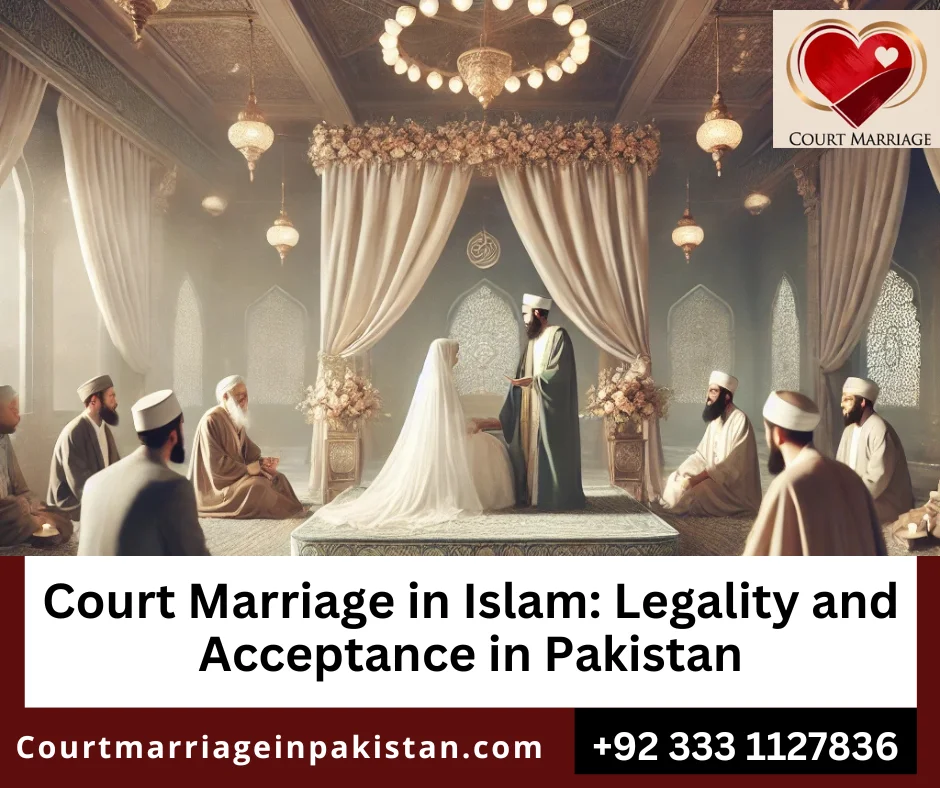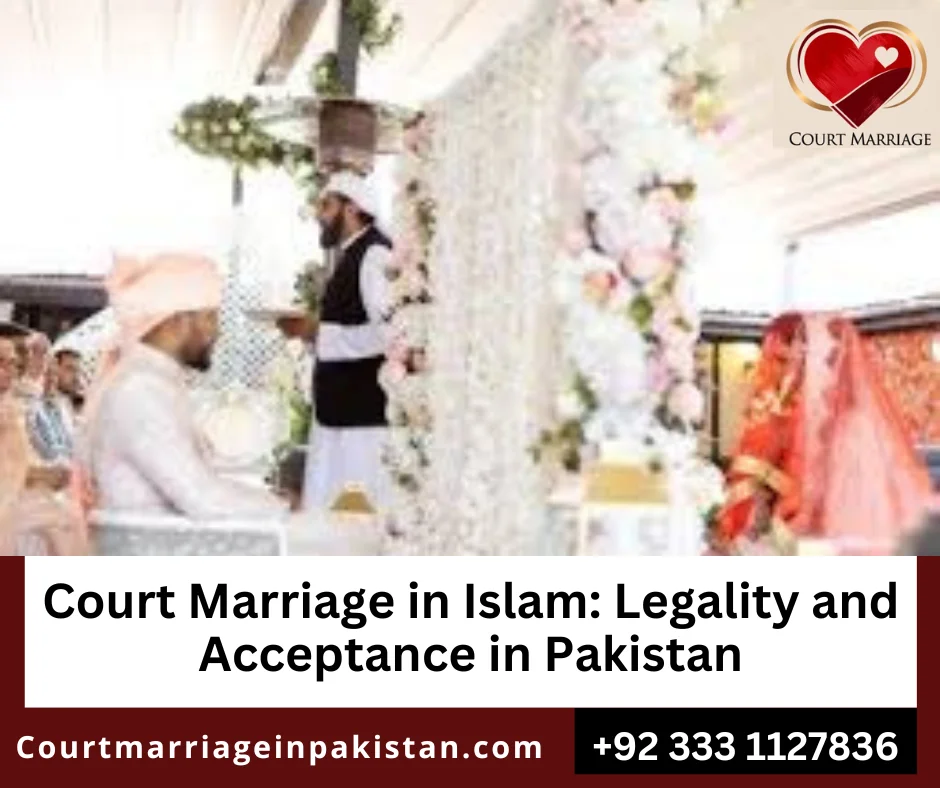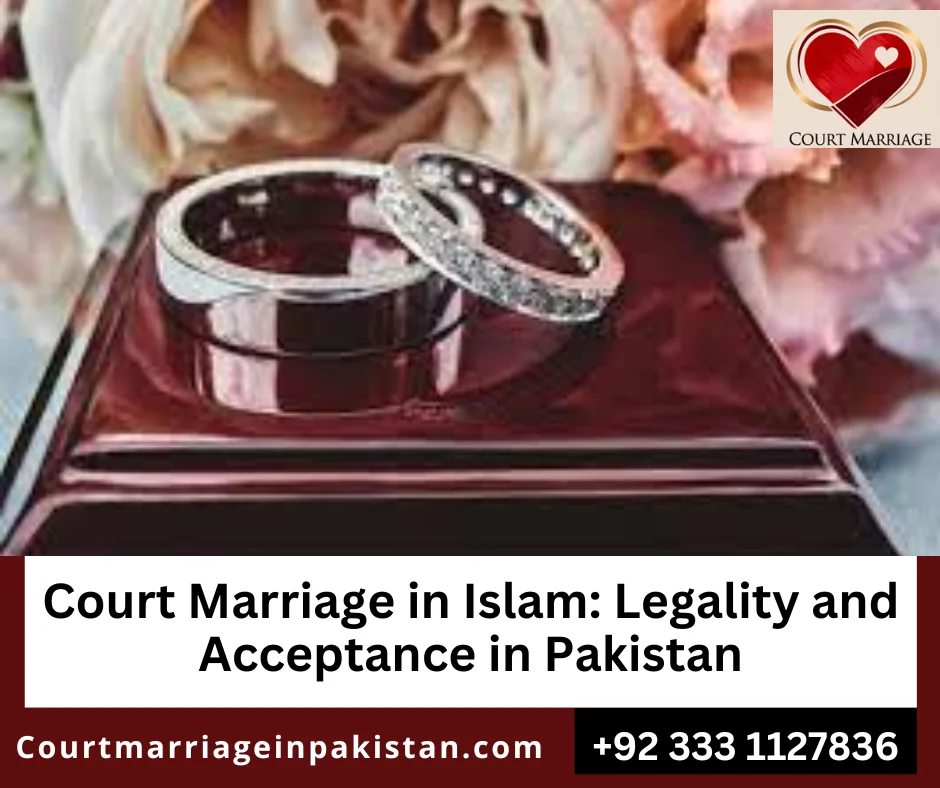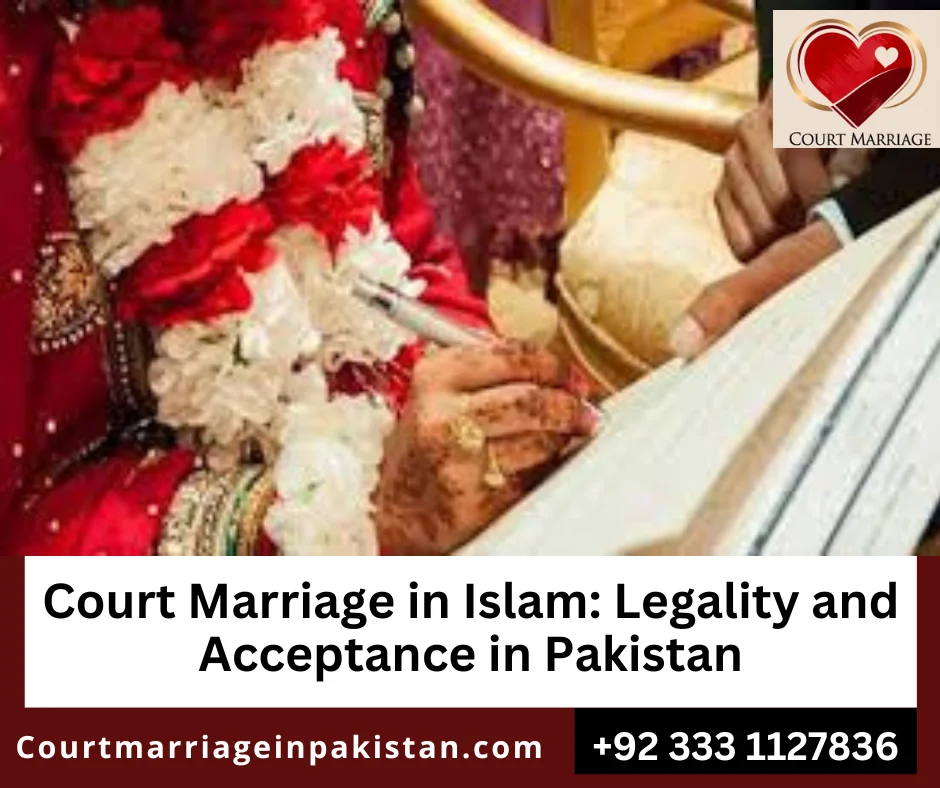Court Marriage in Islam: Legality and Acceptance in Pakistan
Understanding Court Marriage in Islamic Context
Court marriage in Islam is a legally recognized process that allows couples to solemnize their Nikah (marriage) under both Islamic principles and civil law. In Islam, marriage is a contract based on mutual consent between the bride and groom, and court marriage provides a formal way to document this agreement legally. This process ensures that the marriage is registered with the relevant authorities, protecting the rights of both parties under Pakistani law. Court marriage in Islam respects all essential Islamic requirements, including the presence of witnesses and the offer and acceptance (Ijab and Qubul). As court marriages gain popularity in Pakistan, more couples are choosing this transparent and legally secure method to formalize their union while adhering to Islamic values.
Islamic Perspective on Court Marriage and the Importance of Mutual Consent
Court marriage, as recognized in Islamic jurisprudence, is a formal method of tying the nuptial knot, ensuring that all the essential tenets of Islam are adhered to. At the heart of any valid marriage in Islam lies the principle of mutual consent, which emphasizes that both parties must willingly agree to the union without any coercion. This foundational aspect ensures that both individuals fully embrace their marital responsibilities and duties.
Witnesses: A Fundamental Requirement in Islamic Marriage
The presence of witnesses is an essential component of an Islamic marriage, ensuring its authenticity and adherence to religious principles. At least two adults, sane witnesses are required to attest to the marriage ceremony, reinforcing the solemnity of the union. This stipulation not only validates the marriage in the eyes of the community but also strengthens the accountability of both spouses, making it a key factor in securing a legally and socially recognized relationship.
Legal Recognition of Witnesses in Court Marriage
In court marriages, the requirement of witnesses plays a pivotal role in aligning with both religious and legal frameworks. By ensuring the presence of qualified witnesses, court marriages in Pakistan meet Islamic stipulations while obtaining official recognition under the law. Our highly experienced legal team meticulously oversees this process, ensuring seamless compliance with all necessary legal and religious requirements.
The Significance of the Nikah Contract
The Nikah, or marriage contract, is a cornerstone of Islamic marriage, serving as a written agreement that outlines the rights and responsibilities of both spouses. This legally binding document is deeply rooted in Islamic law, defining the structure of the marital relationship and safeguarding the interests of both partners. Through court marriage, the execution of this contract is carried out in an organized and systematic manner, fulfilling all legal obligations in Pakistan while respecting the religious principles essential for a valid Nikah. Our expert lawyers specialize in drafting and verifying Nikah contracts, ensuring accuracy, clarity, and full compliance with both Islamic and Pakistani legal frameworks.


Court Marriage and Islamic Legitimacy
Contrary to common misconceptions, court marriage is fully compatible with Islamic values. Renowned scholars and various schools of thought affirm its legitimacy as long as core Islamic principles—such as mutual consent, the presence of witnesses, and the proper execution of the Nikah contract—are upheld. When conducted per these fundamental tenets, court marriage is a lawful and valid form of union in Islam. Additionally, it is formally recognized by the legal system in Pakistan. Our seasoned legal experts ensure that every court marriage adheres to these critical standards, offering couples a secure and legally sound path to marriage without any complications.
Legal Status of Court Marriage in Pakistan
Court marriage in Pakistan holds a significant place within the legal framework, ensuring that the rights of individuals seeking to marry are protected under the prevailing laws. The primary legal instrument governing marriages in Pakistan is the Muslim Family Laws Ordinance of 1961, which provides a comprehensive structure that regulates the marriage process, including court marriages for Muslims. This ordinance recognizes the legal status of marriages conducted through court, aligning them with the principles of Islam.
Essential Documentation for Court Marriage in Pakistan
Court marriage requires fulfilling specific procedural requirements to ensure its validity and legal recognition. Couples intending to marry through this process must provide essential documents, including their national identity cards, a declaration of marriage intent, and, in certain cases, guardian consent if applicable. These documents play a crucial role in verifying the identity of both individuals and confirming their eligibility for marriage under Islamic law. Our skilled legal team meticulously reviews and prepares all necessary paperwork, ensuring a smooth and hassle-free process for couples.


Issuance of the Marriage Certificate in Pakistan
Once all legal formalities are completed, the Union Council issues an official marriage certificate, which serves as legal proof of the union. This document is vital in Pakistan for various legal matters, including inheritance claims, family rights, and spousal benefits. Our experienced lawyers ensure that couples receive their marriage certificate promptly, handling all procedural aspects with efficiency and professionalism to prevent any delays or complications.
Legal Safeguards in Court Marriage in Pakistan
The legal framework governing court marriage in Pakistan is designed to protect the rights of both spouses, ensuring that the marriage is entered into voluntarily and with full consent—an essential principle in Islam. This legal structure secures various rights, including maintenance, inheritance, and other marital obligations. Our legal experts specialize in navigating these frameworks, ensuring that couples are fully informed of their rights and obligations while receiving comprehensive legal support throughout the marriage process.
Court Marriage: An Accepted and Legitimate Practice
With the growing acceptance of court marriage in Pakistan, this method has become a legitimate and socially integrated practice for many couples. Legal recognition not only reassures individuals seeking to marry but also reinforces the principles of mutual agreement, respect, and fairness within the marital bond. Our dedicated lawyers play a crucial role in advocating for and facilitating court marriages, providing expert guidance and personalized support to ensure a legally sound and ethically compliant union.
Challenges and Social Perspectives on Court Marriage in Pakistan
Court marriage in Pakistan, while legally recognized and permissible under Islamic law, often encounters significant societal resistance and challenges. Predominantly, cultural attitudes towards marriage in Pakistan have traditionally favored arranged unions facilitated by families. This convention frequently poses obstacles for couples who pursue court marriage as an alternative, leading to various forms of opposition from families and local communities. Such pressures may include emotional blackmail, social ostracism, and in some cases, threats of violence against the individuals involved.
Societal Challenges Faced by Couples Opting for Court Marriage
Couples choosing court marriage often encounter resistance due to deeply rooted societal norms and traditional family expectations. In many cases, families prioritize collective approval over individual choice, viewing a legal marriage without familial consent as a deviation from cultural customs. As a result, couples may face emotional and psychological hardships, including estrangement from loved ones. Our legal experts not only facilitate a seamless marriage process but also provide guidance and support to help couples navigate these sensitive challenges with confidence.
The Struggle for Autonomy and Acceptance
Despite societal resistance, numerous couples have successfully challenged these norms, fighting for their right to love and mutual respect. For many, court marriage represents autonomy—the freedom to choose a life partner without external pressures. This evolving mindset, particularly among younger generations, is gradually influencing societal attitudes, fostering increased acceptance of court marriages in urban and progressive circles. Our seasoned legal professionals have witnessed and supported this transformation firsthand, ensuring couples receive the protection and legitimacy they deserve.
Social Media: A Platform for Support and Awareness
The rise of social media has played a significant role in reshaping public perceptions of court marriage. Online platforms have become powerful tools for amplifying positive narratives, allowing couples to share their success stories and experiences. These platforms provide emotional support and encouragement to those considering court marriage, emphasizing its legal and personal benefits. Our legal team recognizes the impact of this shift and actively advocates for couples seeking a secure, lawful, and respected marriage process.


The Future of Court Marriage in Pakistan
While court marriage in Pakistan continues to face cultural resistance, shifting perspectives—especially among the younger population—signal a gradual move toward greater acceptance. The increasing acknowledgment of personal choice within the framework of Islamic marriage is paving the way for a more inclusive and legally recognized approach. Our expert lawyers remain committed to facilitating court marriages with professionalism and sensitivity, ensuring couples achieve their union with dignity and legal assurance.
